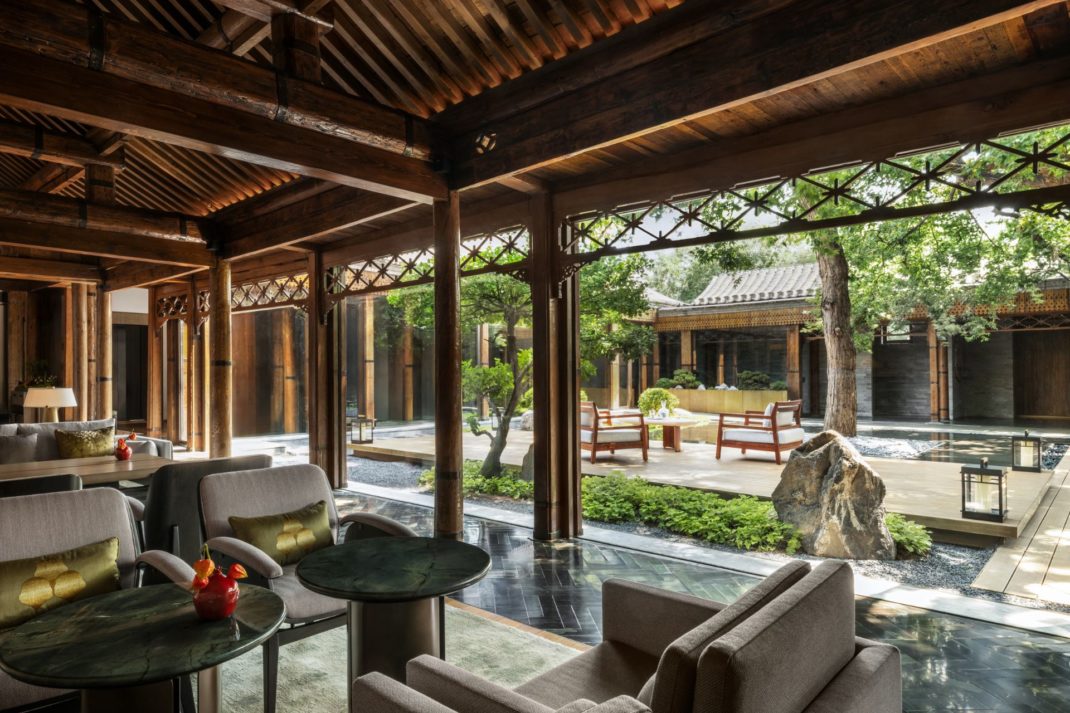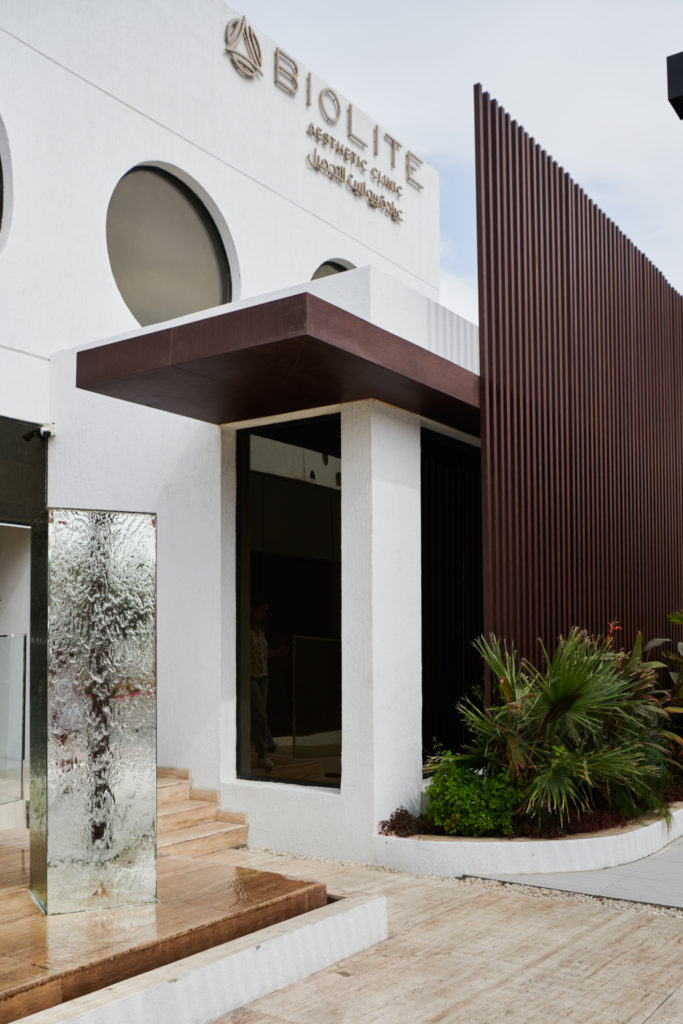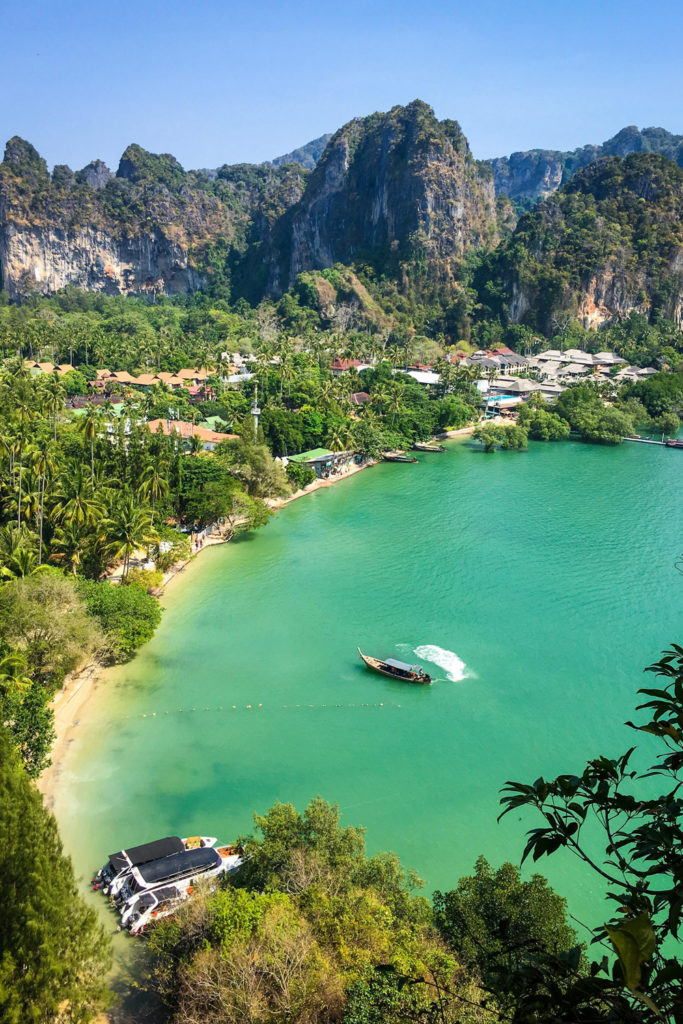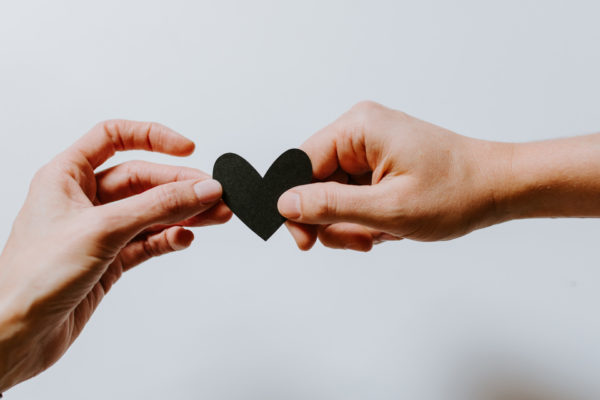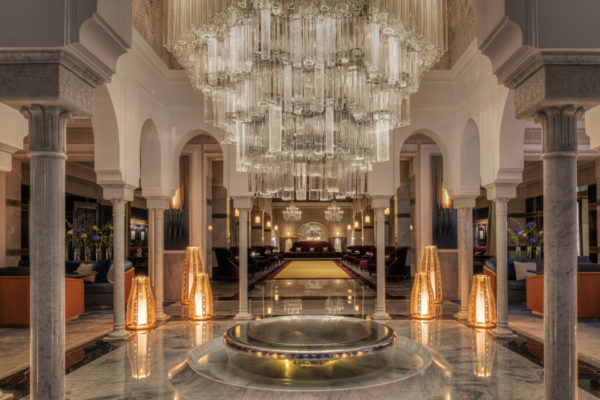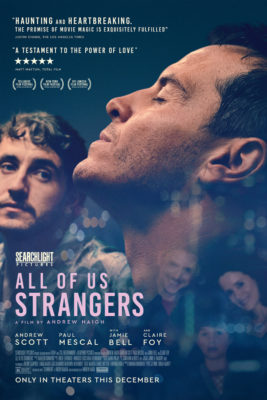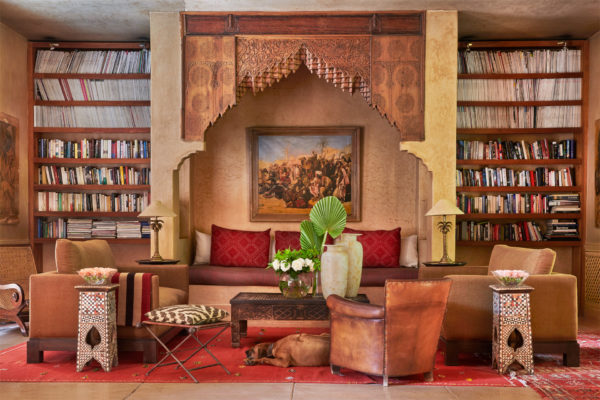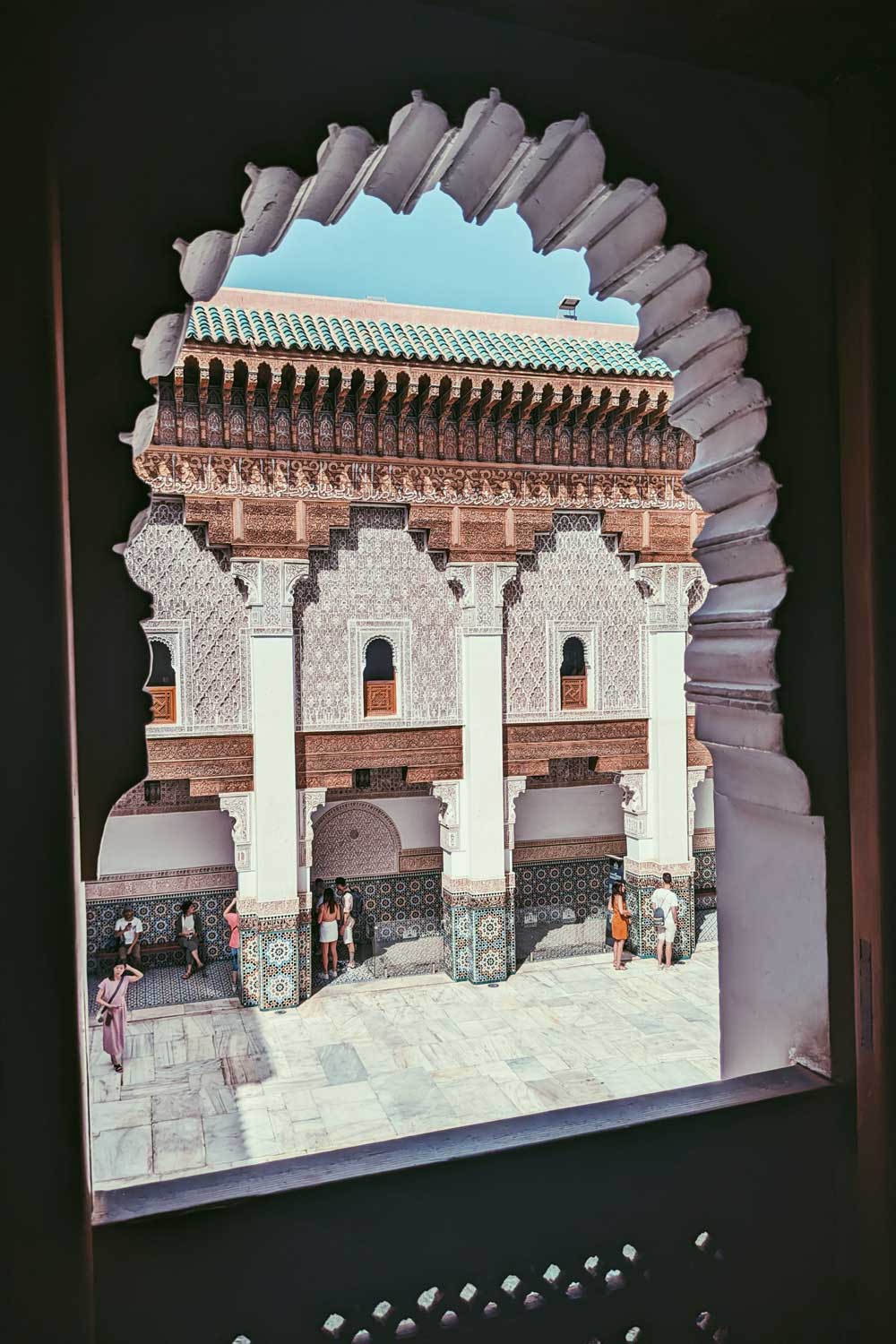
Pride Spotlight: Morocco For LGBTQ+ Travellers
By
11 months ago
Queer people exist. Even in places they are not allowed to.
I wake up on 1 June, the first day of Pride month, in Morocco. With its iconic labyrinthine souks packed with trinkets and treasures, maximalist interiors and iconic architecture, breathtaking landscapes and aromatic cuisine, it’s been a country on my wanderlust-list for many years. And yet. Queer rights and feminism are always on my mind – and though Morocco’s family law reforms have paved the way for the evolution of women’s rights, this is very much still a patriarchal society. And it remains illegal to be gay in Morocco. But I’m here and I’m queer.
So, why now? Inclusive Morocco, the country’s first LGBTQ-founded and led luxury travel company, is dedicated to showcasing the diversity of Morocco, while advocating for a more inclusive and sustainable travel industry. Co-founders Bilal El Hammoumy and Rania Chentouf are dedicated to putting together itineraries that not only serve their individual clients’ needs and beliefs, but they also support positive social and environmental impact on the ground with a focus on championing inclusivity and actively supporting local non-profit organisations. Like Bilal and Rania, I believe that travel is a tool for positive change, so as I barrel toward a UK Pride month filled with bottomless brunch invitations, parades and parties, it is a privilege to be starting the month having brunch (over a Moroccan rosé – another welcome surprise) with Bilal, at the end of a magical five-day adventure showcasing some of the country’s gems.
But before we dive into the wonderful people and places that Morocco has to offer, let’s cover the need-to-knows.
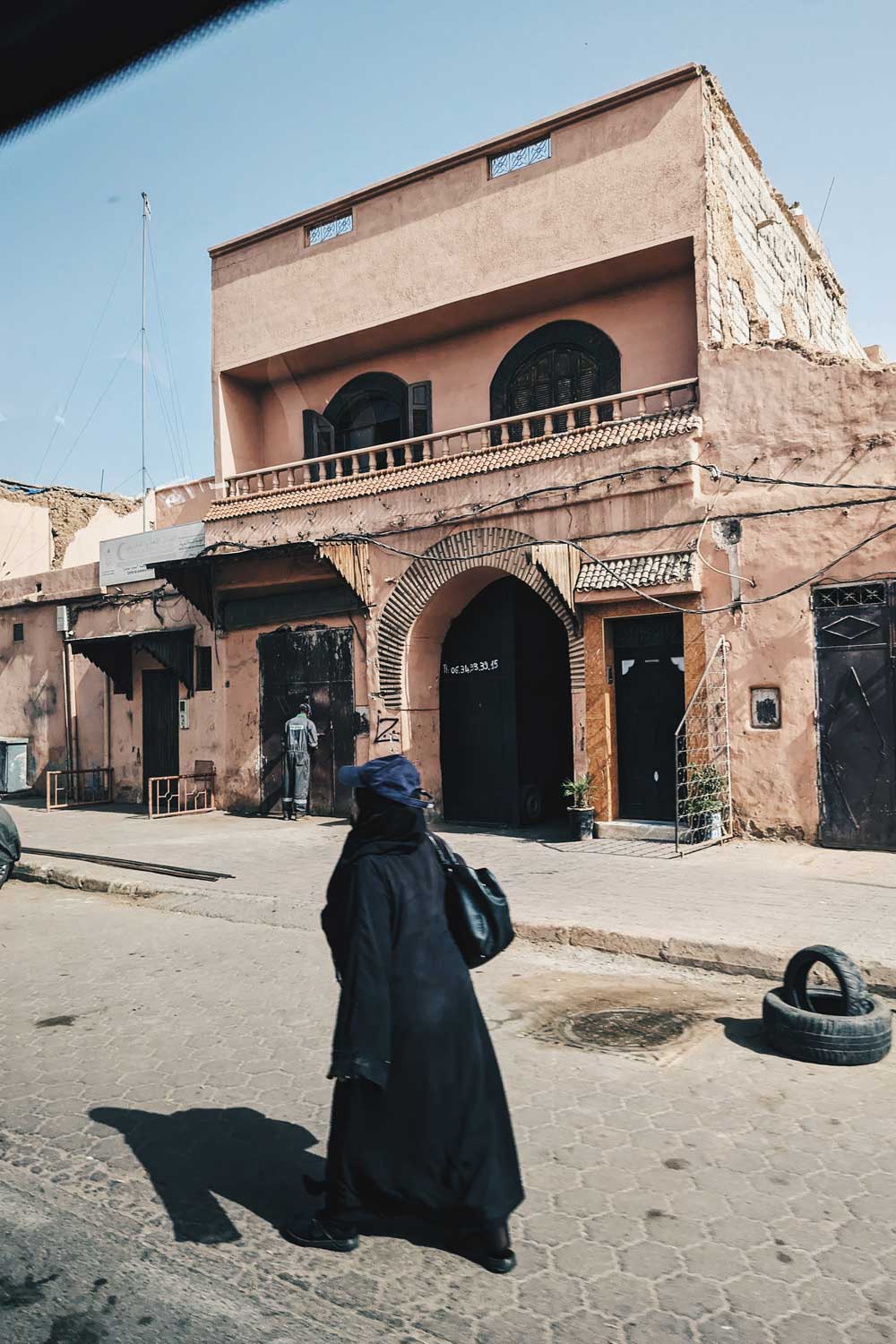
Marrakech (c) Rebecca Cox
What’s The Law?
Same sex relationships are illegal in Morocco under article 489 of the penal code, which prohibits ‘lewd or unnatural acts’ between individuals of the same sex with a penalty of between six months and three years’ imprisonment and a fine.
Is Morocco Safe For LGBTQ+ Travellers?
Despite homosexuality being illegal in Morocco, the country remains a popular destination for queer travellers. As a conservative islamic country, public displays of affection are advised against for all travellers, and as with any destination, respecting local customs and culture is essential. Physical contact (aside from kissing) between same sex couples is more likely to be taken for friendship than cause offence, and booking hotel rooms as a same sex couple has typically been easier in some instances, though a very recent law change now prohibits hotels from asking for a marriage certificate from hetero couples upon check-in.
The law against homosexuality, though very much still in place, is reportedly rarely enforced. The major cities have a growing queer scene and there are even several prominent LGBTQ+ social media influencers in the country, with plenty of accounts creating queer-facing content for and within the community, proud of both their queer and Moroccan identities. But rarely isn’t never, and Bilal tells me of a case several years ago where two women were photographed kissing at a party in Marrakech. The images were sent to their families, they were reported to the police and arrested. The online and local communities rallied, campaigned for their release, and both were acquitted. But the case highlighted the strong anti-LGBTQ+ sentiment still persistent throughout much of the country.
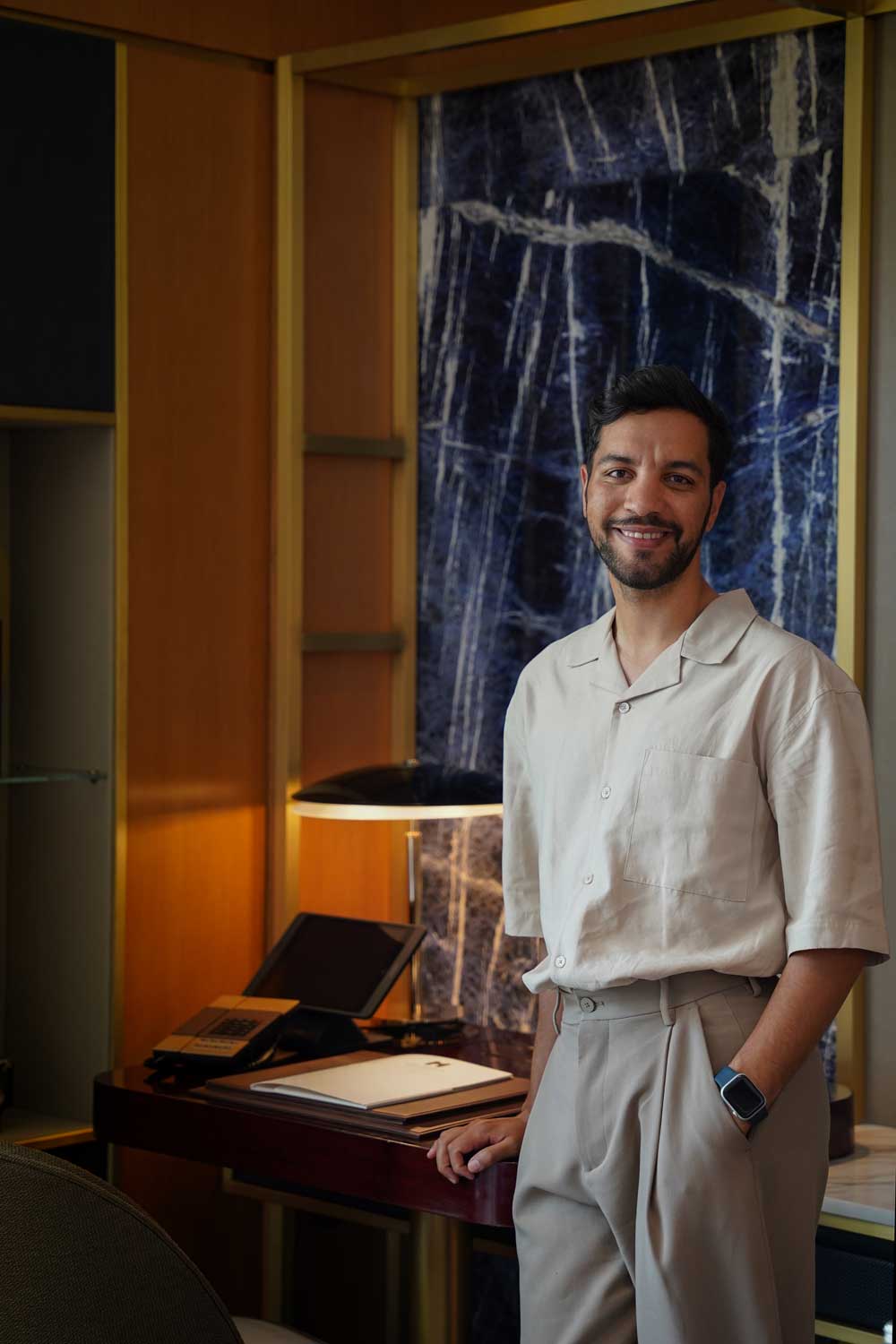
Bilal El Hammoumy, (c) Mohammed Ghbouchi
Inclusive Morocco
Persistent, but not prevalent, which means that LGBT businesses can find small spaces in which to thrive. Inclusive Morocco grew organically, Bilal tells me, through connections made while overseas and the desire for a more inclusive approach to travel in Morocco. Pulling together tailored luxury itineraries for individuals who want to go not off the beaten track, necessarily, but one tailored to their needs and that allows them views that are spectacular, but still aligned with their own. An emphasis on supporting queer and independent businesses and individuals does not interfere with showcasing the very best of what the country has to offer, but rather complements the goal.
On day three of my five-night trip I take in spectacular palaces and gardens by day before retiring to a cosy, queer-owned riad (Riad Kbour & Chou, one of the few queer-owned Riads in the city and a real home away from home) to relax by night. As well as ticking off all the major sights, my trip gives me the opportunity to connect with a number of local guides and individuals, and hear stories of their lives in Morocco. I learnt of Tangier’s past as a queer haven from conservative Europe. I learnt of Marrakech’s present, its ‘Las Vegas’ reputation with wild parties and a vibrant clubbing scene. I find queer and liberal staff working alongside conservative counterparts. A ‘live and let live’ vibe permeates.
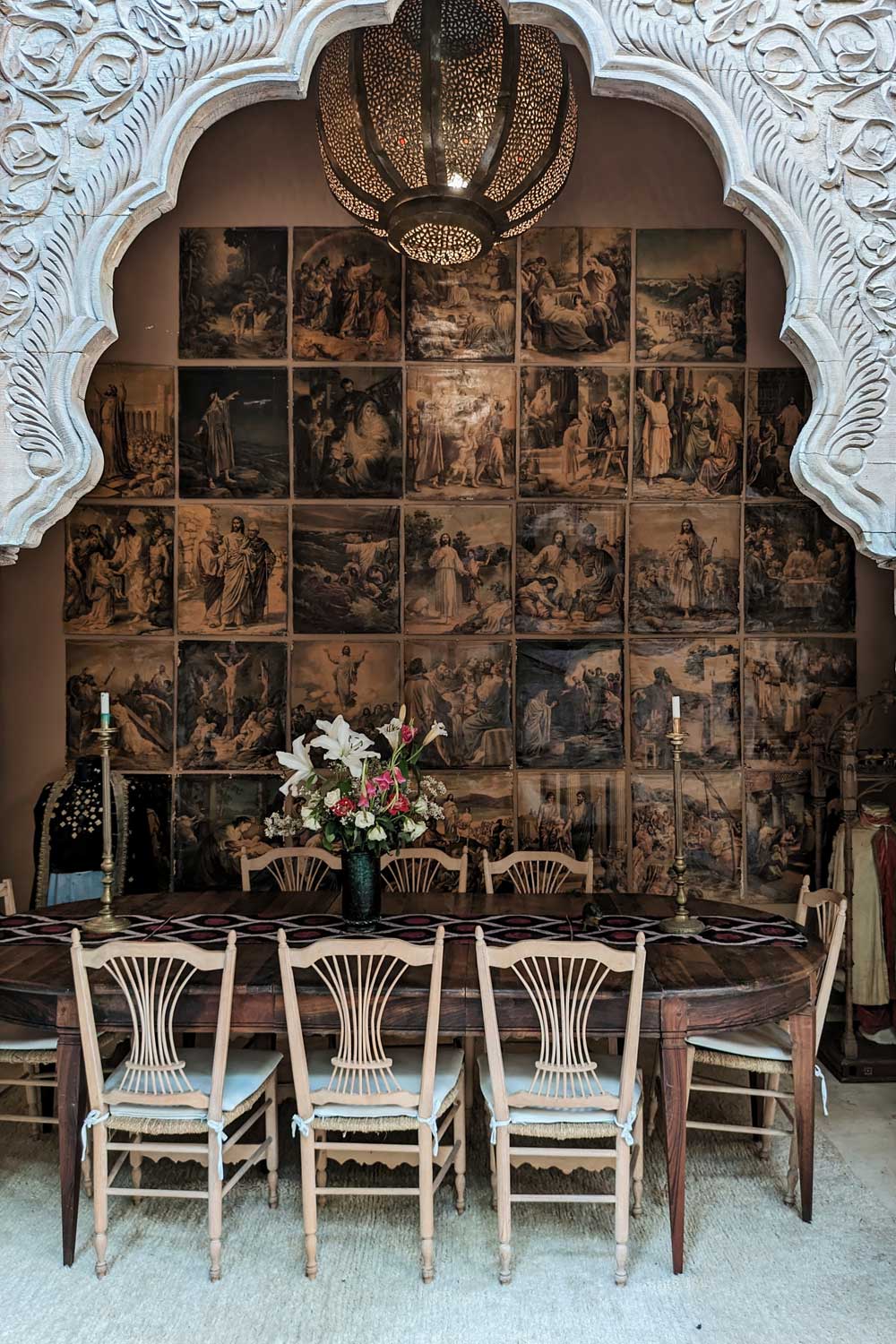
Riad Kbour & Chou (c) Rebecca Cox
A Man’s World
Women’s rights and experiences are also high on my agenda for conversation, and though LGBTQ rights is a discussion I shelf for most of the trip (apart from where it is explicitly appropriate), almost everyone I meet is happy to discuss gender roles in some form with me. I spend most of the trip with the brilliant Nisserine, one of the country’s few female drivers. On the road we talk about people, places and politics, and she shares her experiences of working in a male-dominated field in Morocco, travelling the country and guiding tourists through the rich and varied landscape of her homeland. She highlights the importance of having had a supportive and progressive family to help her follow her dreams.
The same is needed for young queer individuals all over the world, who wish to follow their hearts. Almost everyone I meet during my trip, from the bustling Marrakech medina to the highest village of the Atlas mountains (where living off-script is undoubtedly harder, though education charities are supporting equal opportunities for Berber girls and boys) talks to me about the Moroccan culture of tolerance. The nation’s warmth comes not only from the hot North African sun, but from its people, their communities and their openness to greet those living outside of them.
There is comfort in familiarity, places and people that feel like home, yes. But richness comes from travel, leaving that comfort zone, finding common ground and even connection with people who are living a life so contrary to your own, with different beliefs, abiding (or not abiding) to different laws. One should be respectful of any culture and exercise caution when travelling but also remember that subcultures exist, even in places they’re not allowed to, and they’re every bit as much worth observing, and respecting.
And meeting someone like Bilal on another continent who shares your values, someone supporting love outside the lines and championing progress against the odds? Beyond richness, this is solid gold. (Or a cool glass of rosé on a hot Marrakech day.)
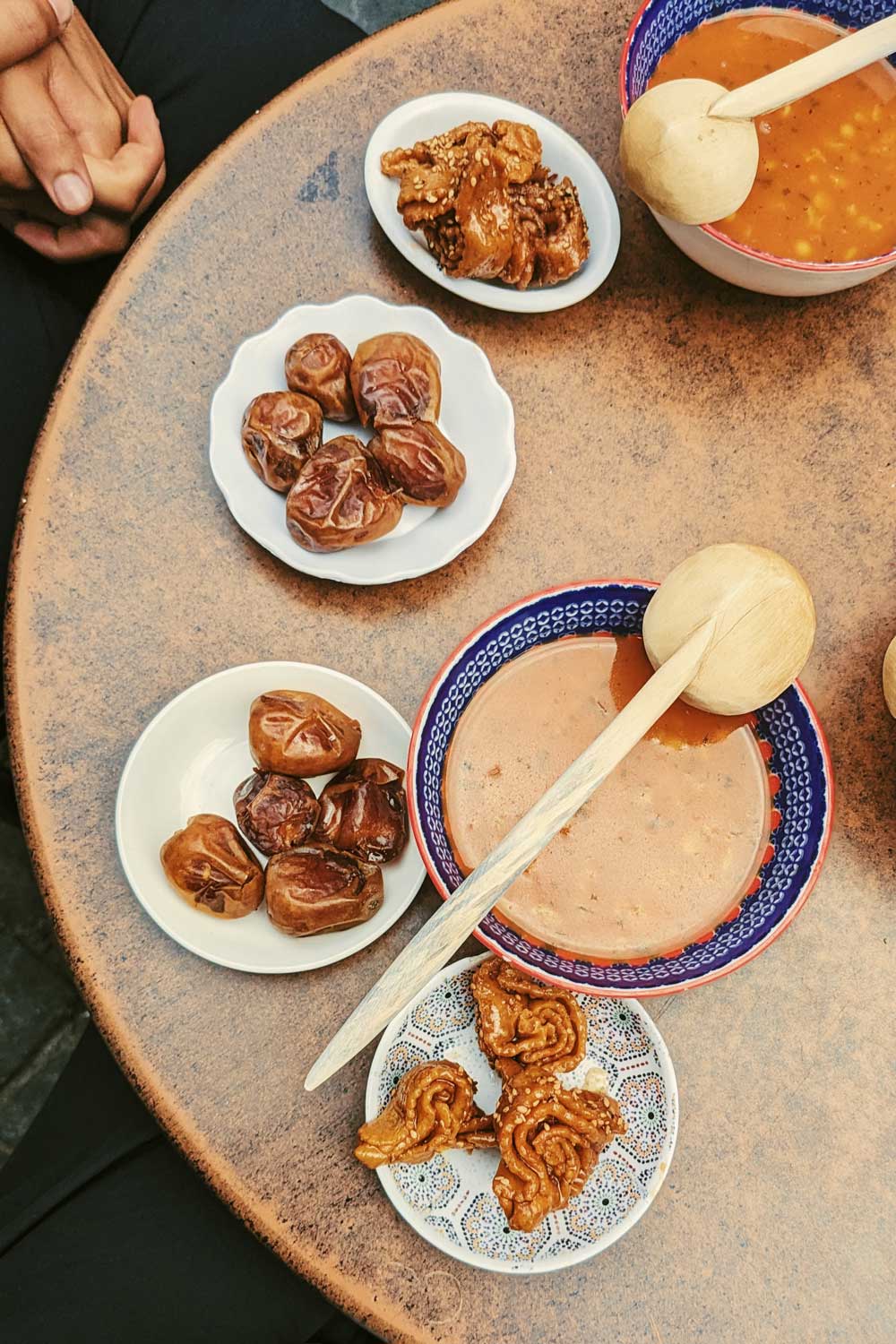
Street food in Marrakech (c) Rebecca Cox
Travel With Confidence
Over five nights and six days in Morocco I visited Marrakech and the Atlas Mountains. Full trip write-up to follow. You can see example itineraries at or contact Bilal and Rania to start organising your bespoke visit. Ask them if you would like to prioritise guides and activities that support LGBT+ or female-owned businesses, or collectives supporting the protection of local arts and culture such as The Anou Cooperative selling local crafts directly from the artisans. Visit inclusivemorocco.com for more information.
Happy Pride Month to all those celebrating, and to those who can’t.

